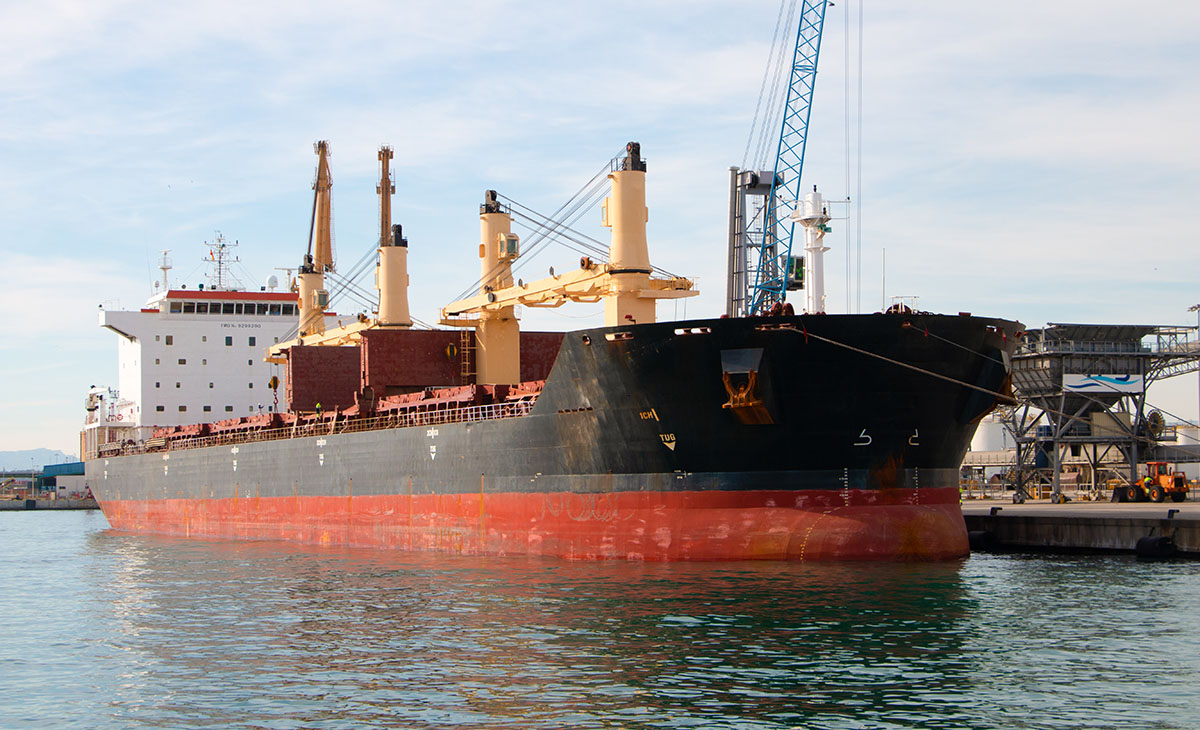
(Photo: Iowa Soybean Association)
California port woes could impact soybean exports
April 12, 2023 | Jeff Hutton
Possible labor disruptions at West Coast ports could have a direct impact on soybeans and other U.S. exports – an issue officials warn could be a devastating “gut punch” to the overall economy.
Terminal operations at the Los Angeles and Long Beach ports were briefly closed during the April 6 evening shift and the April 7 day shift. Work resumed shortly thereafter.
According to FreightWaves, the Pacific Maritime Association (PMA), representing the terminals, says port facilities were closed due to the “concerted action to withhold labor” by the International Longshore and Warehouse Union (ILWU) Local 13.
The union, meanwhile, says members were busy at a monthly membership meeting as well as celebrating the Good Friday holiday with their families.
This 24-hour temporary halt to the work at the two California ports is raising concerns that any potential work stoppage or shutdown will significantly hurt those who has a vested interest in what happens, including U.S. farmers and consumers.
“Ever since the old contract failed to get renewed in the middle of 2022, the specter of labor disruptions on the U.S. West Coast has been a constant risk factor,” says Lars Jensen, the head of Vespucci Maritime. “As the labor disruptions in 2014-15 showed, it does not take long for a substantial queue of container vessels be built up outside California.”
Though a temporary stoppage, it reveals how tensions are on the increase along the West Coast says Mike Steenhoek, executive director of the Soy Transportation Coalition, an organization comprised of 13 state soybean boards, the American Soybean Association and the United Soybean Board. The 13 participating states, including Iowa, encompass 85% of total U.S. soybean production.
“These negotiations impact containerized shipping of agricultural products, not bulk shipping. Bulk shipping terminals (that accommodate the overwhelming majority of exports for soybeans) operate under a separate contract. They are not being disrupted due to these negotiations,” he says.
The current negotiations will impact 4-5% of soybeans exported via containers from the West Coast, according to Steenhoek.
“While the shutdown at the two ports only lasted one day, the larger issue is one of the key links in the U.S. supply chain is showing itself to be increasingly unreliable. It certainly merits continued monitoring.”
The National Retail Federation renewed calls for the White House to engage with the stakeholders, saying “it is essential that the ongoing labor negotiations between the International Longshore and Warehouse Union and the PMA are resolved immediately.”
Potential economic fallout
Among the reasons for the urgency: the “gut punch” the economy might have to absorb if the nation’s largest port complex shuts down for a labor disruption, according to a report from Bloomberg.
The National Association of Manufacturers released a report last year estimating the potential fallout at $500 million a day, with a hypothetical 15-day strike leading to 41,000 job losses.
Bloomberg notes those figures were released last June — a moment of peak leverage for the longshoremen as ships queued up to enter the California ports and import volumes and the overall economy were still relatively solid.
Now, the vessels aren’t coming as fast as they were a year ago, the backlog has been cleared, and many ships are bypassing Southern California and heading to the Gulf or East coasts to avoid exactly the kind of uncertainty unfolding around Los Angeles and Long Beach.
“If there is a stalemate in negotiations and a strike or lockout occurs, the U.S. administration would likely intervene very quickly to limit the stoppage to just a few days,” says Erin McLaughlin, a senior economist at the Conference Board.
“Effective supply chains are a two-way street,” Steenhoek says. “Those who assist with handling and transporting freight expect reliable commitments and predictions from shippers. Shippers, in turn, expect the transportation providers – including ports and dockworkers – to provide predictable and reliable service in moving freight from its origin to its destination. Unfortunately, West Coast ports are not providing that predictability and reliability. We are hopeful that this two-way street can soon be restored to the benefit of agriculture and the broader economy.”
Back